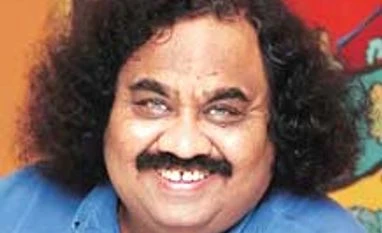How much of an impact does a celebrity's endorsement really bring to the table?
I am currently writing my PhD thesis on human brands. My research clearly establishes that celebrities enhance both recognition and recall of a brand. This is even more pronounced in the non-metro markets, and in lower socio-economic groups.
Consumers are 60 per cent more likely to buy a lifestyle product endorsed by a celebrity and 48 per cent more likely to buy a product endorsed by a well-known sportsman.
In the past, Amitabh Bachchan, Preity Zinta and Madhuri Dixit have been questioned for endorsing Maggi's nutritional benefits while Shah Rukh Khan faced people's ire for endorsing a fairness cream for men. M S Dhoni's endorsement of a builder too ran into trouble. Are they liable and accountable for what they endorse ?
In the Amrapali ad, Dhoni (with RP Singh) very clearly says that "we have our homes at Amrapali because Amrapali is the best". So the endorsement is explicit and unambiguous. Dhoni received a free flat (or so I am told) for endorsing the builder. Hence, he received due consideration. He did not make an innocent, straight-from-the-heart statement without knowledge of what he was saying. His culpability is evident. We need to first separate celebrity endorsement from celebrity advertising. Endorsement is the act of saying that you approve of or support something; so celebrity endorsement is when celebrities are playing themselves and endorsing a product.
Celebrity advertising, however, is an ad with a celebrity playing a role in line with a script. When Dhoni says he gets his energy from Revital, he is endorsing the product. Hence, he is liable if the product falls short of the promise it makes.
When Madhuri Dixit plays the role of a mom with kids and a reel husband in a home setting and serves them a bowl of Maggi noodles, she is playing a mom - not Madhuri, the actor. This is celebrity advertising, not endorsement.
If this proposal is passed, what would be the fallout of this?
The biggest fallout of a potential legislation will be that many brands and their agencies will shy away from using endorsers. Today, the easiest solution to any marketing problem is to use a celebrity. The lack of ideas is often substituted by roping in a celebrity. This will be halted.
Celebrities too will tread with caution. Contracts today cover liability between the company and celebrity. But this is largely civil in nature. No contract between the two can absolve the celebrity from criminal liability if the promise of the product is exaggerated.
Celebrities have to make sure they do enough due diligence on their own before they sign up multi-million dollar contracts. Today, it is just easy money. Lend your name, lend your face, and laugh your way to the bank.
Shah Rukh Khan recently said that celebrities have limited responsibilities towards endorsements, sharing how he believes in the credibility of an ISI mark. If brand endorsers are held accountable for misleading ads, should certificate-issuing bodies be pulled up too?
I disagree with Shah Rukh that just because the product has an ISI certification, it is enough proof for him that the product meets standards. If that were enough, the brand owners would focus the ad only on the ISI mark. Since they choose to spend a fortune to get Shah Rukh to lend his face to the brand, they obviously understand that the brand will be bought because of Shah Rukh and not the ISI mark.
Bollywood celebrities have been frowned upon in the past for endorsing pan masala and gutka. Should companies, and celebrities, follow certain guidelines before signing contracts?
So far, most of this is self-regulation. And that is obviously not working. More stringent guidelines are needed. More important, their enforceability is required. Today, despite the Advertising Standards Council of India, the Indian Broadcasting Foundation and the News Broadcasters Association, surrogate advertising for liquor is being aired with impunity. It is going unchecked. So, the moral of the story is that self-regulation is a myth, law is a reality.
What are the ways to ensure that a consumer is not led astray by false advertising?
This isn't easy. Celebrities have an aura, a magnetism which gets consumers to trust them. This cannot be wished away. It is human nature to look up to icons.
You’ve reached your limit of {{free_limit}} free articles this month.
Subscribe now for unlimited access.
Already subscribed? Log in
Subscribe to read the full story →

Smart Quarterly
₹900
3 Months
₹300/Month
Smart Essential
₹2,700
1 Year
₹225/Month
Super Saver
₹3,900
2 Years
₹162/Month
Renews automatically, cancel anytime
Here’s what’s included in our digital subscription plans
Exclusive premium stories online
Over 30 premium stories daily, handpicked by our editors


Complimentary Access to The New York Times
News, Games, Cooking, Audio, Wirecutter & The Athletic
Business Standard Epaper
Digital replica of our daily newspaper — with options to read, save, and share


Curated Newsletters
Insights on markets, finance, politics, tech, and more delivered to your inbox
Market Analysis & Investment Insights
In-depth market analysis & insights with access to The Smart Investor


Archives
Repository of articles and publications dating back to 1997
Ad-free Reading
Uninterrupted reading experience with no advertisements


Seamless Access Across All Devices
Access Business Standard across devices — mobile, tablet, or PC, via web or app
)

